A Helpful Guide To Saving Water When You Have A Swimming Pool
Having a swimming pool in your backyard can be great, but it definitely adds to your water bills. Besides this, there is also concern about the amount of water that is wasted by using swimming pools. Thus, it is important to learn water conservation and use the water judiciously in your swimming pool or spa. Learning how to use water smartly is a skill that can be acquired by anybody by following a few tips. There are many ways this can be accomplished. Before getting to that, it is important to examine the ways in which water is wasted in pools.
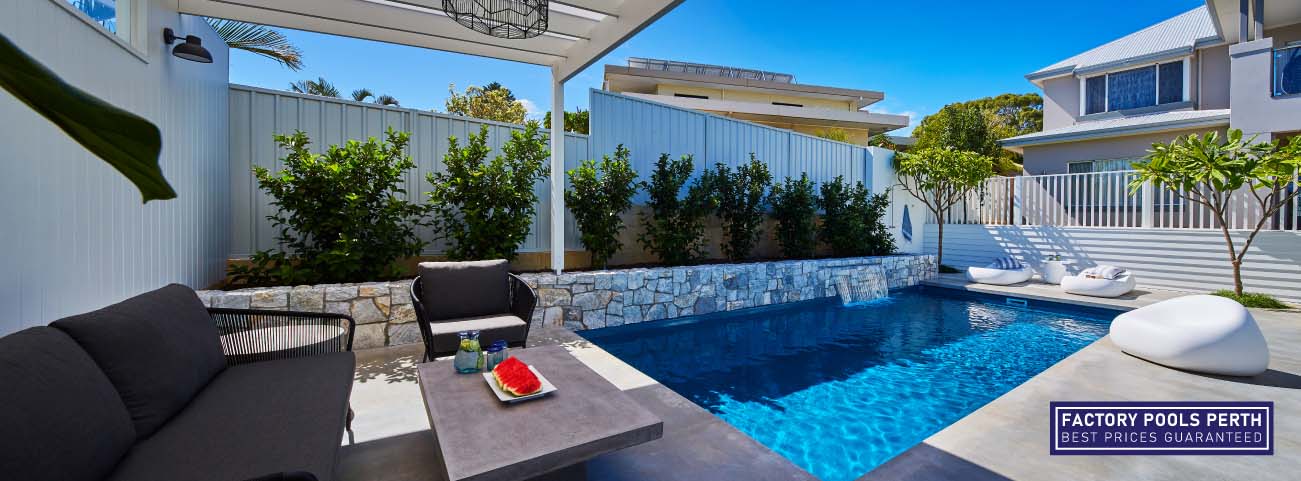
How is Water Wasted in Swimming Pools?
Many experts are of the opinion that swimming pools do not waste as much water as it is claimed. It has been found that once a pool has been filled, it wastes less water than an irrigated lawn would use in a day. If a pool is properly maintained, excessive water wastage can be prevented. Following are some of the ways in which water is wasted in swimming pools –
· Water evaporation
· Leaks in the swimming pool
· Backwashing the filter- A normal backwash for cleaning a sand filter roughly wastes around 200 gallons of water.
· Water splashing out of the pool
You can try a few steps to avoid the wastage of water. Keeping yourself educated about all the new techniques of water conservation is of utmost importance. Whether you are already a pool owner or looking to own one soon, it is important that you learn some tips to avoid wasting water. Following are some tips for saving water in swimming pools-
1. Avoid Draining Your Pool Every New Season
There are some pool owners who love draining their pools at the start of every season. This gives them an opportunity to use fresh, clean water. However, this practice should be reconsidered because of the sheer wastage that results from it.
If you keep up with the regular cleaning and maintenance of the pool, then draining it as frequently would not be required. Even if the pool water is getting cloudy, it does not mean that pool is dirty and should be drained. There are a lot of methods for treating cloudy water which does not require you to drain your pool. According to the experts, a pool should be completely drained every 3 to 7 years, while the spas can be drained after every 3 months. A lot depends on the usage and maintenance as well.
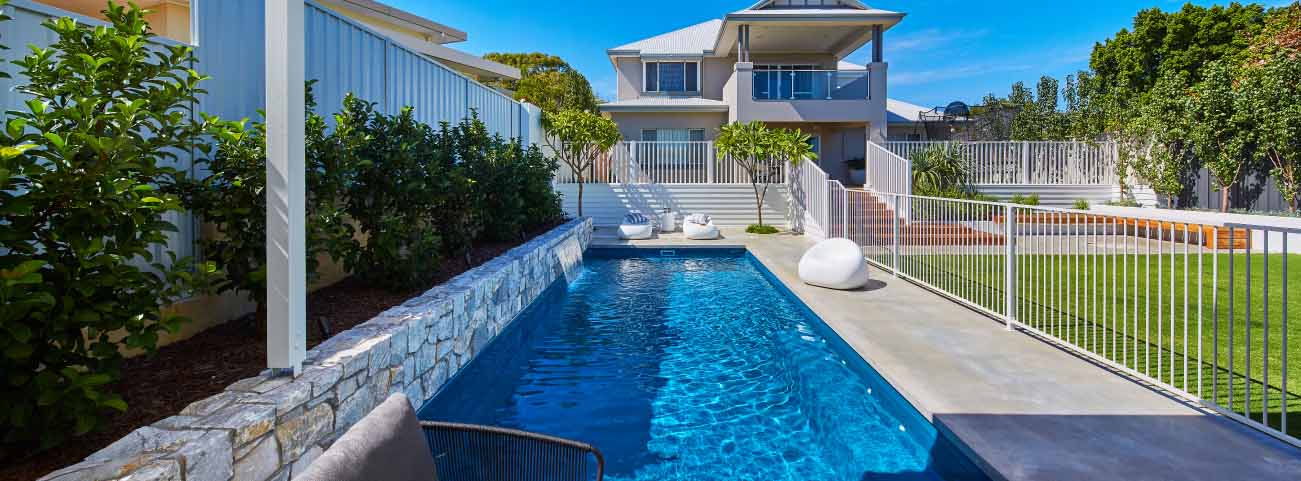
2. Cover the Pool
There are many advantages that come with heating pools, the primary one being that they can then be used throughout the year. However, there is a downside to this, as heating the pool can lead to water evaporation. As a result, the water would need to be topped up more often. A good quality pool cover can be useful in this situation. It has been found that swimming pools that are not covered end up losing about 1 inch of water every week to evaporation. This can total up to around 7,000 gallons in a year. Covering the pool not only helps in conserving water but also cuts down the heating costs. Most pool covers also come with rollers these days, so it is a convenient and easy way to save water.
3. Reusing the Backwashed Water
Backwashing the filter or removing the chlorine from the pool results in the accumulation of a lot of wastewater which is quite often emptied into a lawn. There can be several other ways this water can be reused that would help with water conservation, like watering plants. It is important to ensure that the water that comes out of backwashing does not empty into the street drains or other people’s property.
4. Maintain Water Level
It is a lesser-known fact that you can conserve water by maintaining the right level of water in the swimming pool. According to the pool experts, the water level should reach halfway up to the opening of the skimmer. This will prevent the wastage of gallons of water and it will also ensure a proper skimming action for the pool. Remember to never overfill the swimming pool as it could eventually end up lowering the efficiency of the skimmer. Besides, overfilling leads to a lot of water wastage.
5. Avoid Splashing
Remember to avoid splashing outside the pool as it wastes water unnecessarily. Another way to prevent this is by not overfilling the pool after a certain point. When the pool is in use, remember to plug the overflow line and do the same when you are adding water to the pool. This ensures that water is not lost in the filling process.
6. Check the Pool for Leaks
Get your pool checked and repaired if you notice any visible leaks on the surface of the pool. However, sometimes the leak could be underground. The best way to detect such leaks is by marking the water level near the skimmer. If, after 24 hours, the water level has changed, then it means that there is an underground leak in the pool. When getting your pool
checked, also ensure that the drainage system, water pipes, and other mechanisms are functioning smoothly.
7. Use Fewer Chemicals
When adding chemicals to your swimming pool, remember not to over-treat your pool. This is because excessive use of chemicals can lead to corrosion in the pipes over time. This eventually leads to more plumbing issues.
8. Clean the Pool and Filters
If you continue with the regular cleaning of the pool and the filter, it will reduce the need to backwash. You will be able to notice that the dirty water will be purged quickly, and it would also require less water to do so.
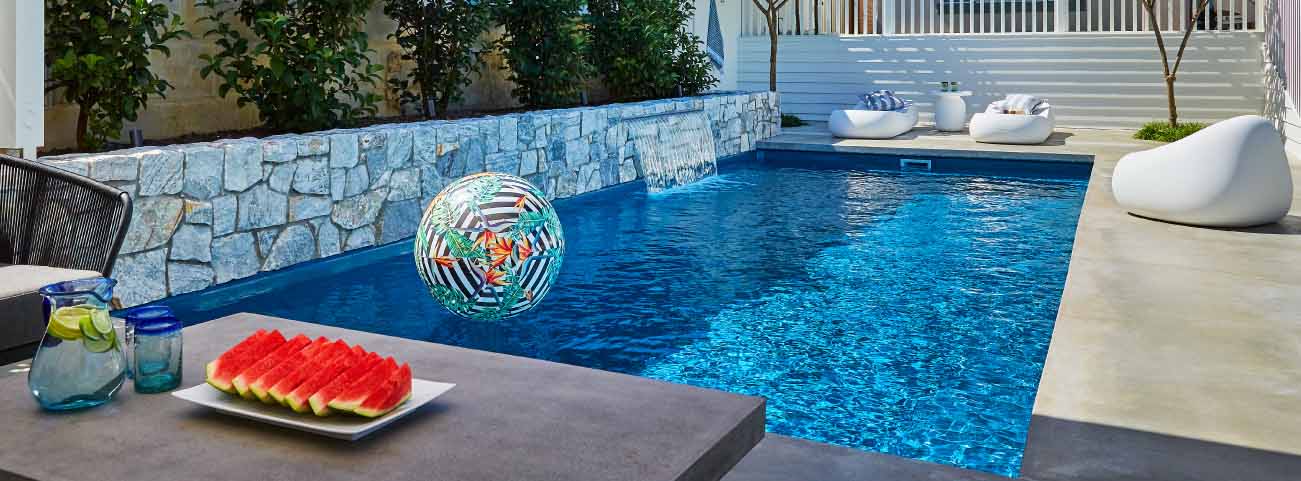
9. Turn off Tile-Spray Device
Remember to keep the tile-spray device switched off when using the automatic pool cleaner. The splashing from the device often sends water out of the pool. Besides, the water sprayed on the tiles gets lost due to evaporation in the intense heat of the summer.
10. Turn waterfalls and fountains off
It is important to shut down unnecessary waterfalls and fountains when they are not needed. This is because you can end up losing a significant amount of water from evaporation and aeration. By turning them off, you will be able to save a lot of energy too.
Conclusion
With these simple tips, your will be able to prevent the wastage of water in your swimming pool. It will also help you save money by reducing your water bill. Even if the water bill is not much of a concern for you, practising water conservation is always a good habit.
A Helpful Guide To Saving Water When You Have A Swimming Pool
Having a swimming pool in your backyard can be great, but it definitely adds to your water bills. Besides this, there is also concern about the amount of water that is wasted by using swimming pools. Thus, it is important to learn water conservation and use the water judiciously in your swimming pool or spa. Learning how to use water smartly is a skill that can be acquired by anybody by following a few tips. There are many ways this can be accomplished. Before getting to that, it is important to examine the ways in which water is wasted in pools.
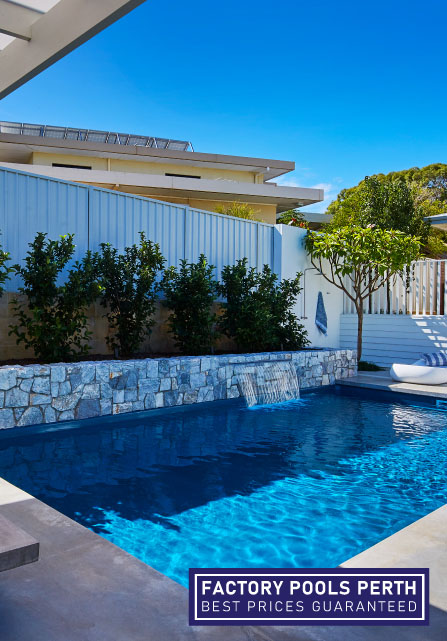
How is Water Wasted in Swimming Pools?
Many experts are of the opinion that swimming pools do not waste as much water as it is claimed. It has been found that once a pool has been filled, it wastes less water than an irrigated lawn would use in a day. If a pool is properly maintained, excessive water wastage can be prevented. Following are some of the ways in which water is wasted in swimming pools –
· Water evaporation
· Leaks in the swimming pool
· Backwashing the filter- A normal backwash for cleaning a sand filter roughly wastes around 200 gallons of water.
· Water splashing out of the pool
You can try a few steps to avoid the wastage of water. Keeping yourself educated about all the new techniques of water conservation is of utmost importance. Whether you are already a pool owner or looking to own one soon, it is important that you learn some tips to avoid wasting water. Following are some tips for saving water in swimming pools-
1. Avoid Draining Your Pool Every New Season
There are some pool owners who love draining their pools at the start of every season. This gives them an opportunity to use fresh, clean water. However, this practice should be reconsidered because of the sheer wastage that results from it.
If you keep up with the regular cleaning and maintenance of the pool, then draining it as frequently would not be required. Even if the pool water is getting cloudy, it does not mean that pool is dirty and should be drained. There are a lot of methods for treating cloudy water which does not require you to drain your pool. According to the experts, a pool should be completely drained every 3 to 7 years, while the spas can be drained after every 3 months. A lot depends on the usage and maintenance as well.
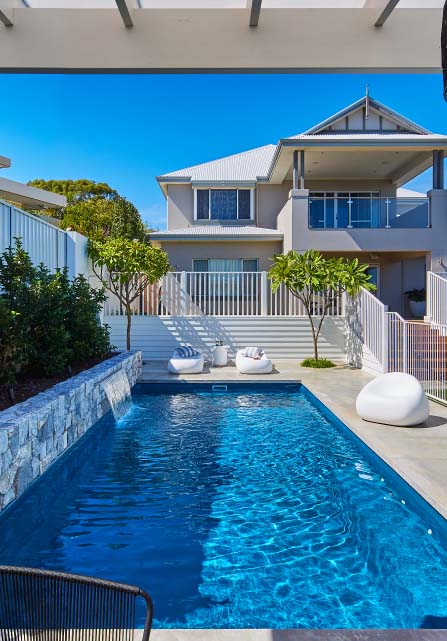
2. Cover the Pool
There are many advantages that come with heating pools, the primary one being that they can then be used throughout the year. However, there is a downside to this, as heating the pool can lead to water evaporation. As a result, the water would need to be topped up more often. A good quality pool cover can be useful in this situation. It has been found that swimming pools that are not covered end up losing about 1 inch of water every week to evaporation. This can total up to around 7,000 gallons in a year. Covering the pool not only helps in conserving water but also cuts down the heating costs. Most pool covers also come with rollers these days, so it is a convenient and easy way to save water.
3. Reusing the Backwashed Water
Backwashing the filter or removing the chlorine from the pool results in the accumulation of a lot of wastewater which is quite often emptied into a lawn. There can be several other ways this water can be reused that would help with water conservation, like watering plants. It is important to ensure that the water that comes out of backwashing does not empty into the street drains or other people’s property.
4. Maintain Water Level
It is a lesser-known fact that you can conserve water by maintaining the right level of water in the swimming pool. According to the pool experts, the water level should reach halfway up to the opening of the skimmer. This will prevent the wastage of gallons of water and it will also ensure a proper skimming action for the pool. Remember to never overfill the swimming pool as it could eventually end up lowering the efficiency of the skimmer. Besides, overfilling leads to a lot of water wastage.
5. Avoid Splashing
Remember to avoid splashing outside the pool as it wastes water unnecessarily. Another way to prevent this is by not overfilling the pool after a certain point. When the pool is in use, remember to plug the overflow line and do the same when you are adding water to the pool. This ensures that water is not lost in the filling process.
6. Check the Pool for Leaks
Get your pool checked and repaired if you notice any visible leaks on the surface of the pool. However, sometimes the leak could be underground. The best way to detect such leaks is by marking the water level near the skimmer. If, after 24 hours, the water level has changed, then it means that there is an underground leak in the pool. When getting your pool
checked, also ensure that the drainage system, water pipes, and other mechanisms are functioning smoothly.
7. Use Fewer Chemicals
When adding chemicals to your swimming pool, remember not to over-treat your pool. This is because excessive use of chemicals can lead to corrosion in the pipes over time. This eventually leads to more plumbing issues.
8. Clean the Pool and Filters
If you continue with the regular cleaning of the pool and the filter, it will reduce the need to backwash. You will be able to notice that the dirty water will be purged quickly, and it would also require less water to do so.
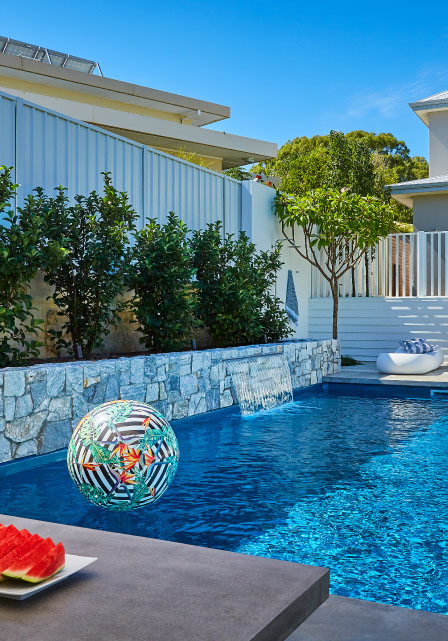
9. Turn off Tile-Spray Device
Remember to keep the tile-spray device switched off when using the automatic pool cleaner. The splashing from the device often sends water out of the pool. Besides, the water sprayed on the tiles gets lost due to evaporation in the intense heat of the summer.
10. Turn waterfalls and fountains off
It is important to shut down unnecessary waterfalls and fountains when they are not needed. This is because you can end up losing a significant amount of water from evaporation and aeration. By turning them off, you will be able to save a lot of energy too.
Conclusion
With these simple tips, your will be able to prevent the wastage of water in your swimming pool. It will also help you save money by reducing your water bill. Even if the water bill is not much of a concern for you, practising water conservation is always a good habit.



